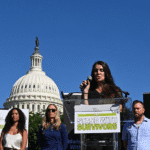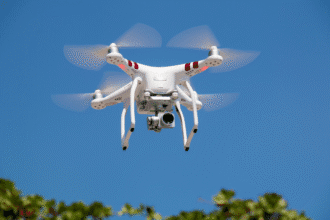The rise of artificial intelligence is a big problem for Africa, which has a lot of different languages. This is called the AI language gap. Even though Africa has more than a quarter of the world’s languages, most of them are not being used in AI development. This digital exclusion is mostly due to a lack of written data and a lack of investment.
Millions of Africans are left behind because AI tools like chatbots and virtual assistants depend mainly on English, Chinese, and European languages. These platforms typically can’t understand or reply in African languages that are commonly spoken, which makes the digital divide even bigger. But there is a new effort to change that.
The Africa Next Voices project is building the continent’s largest open-source dataset of African languages using money from around the world. The project is setting the stage for AI solutions that include everyone by recording authentic voices from different communities.
Why don’t AI systems know African languages?
Most AI models need a lot of textual data to learn. Many African languages are spoken more than they are written, which makes it hard to train AI tools that are correct. Because of this, these languages don’t show up as often in worldwide datasets.
If language isn’t included, non-English speakers can’t get to services like education, healthcare, or help with farming. This language gap has big effects on digital development all over Africa. Here is the link to our article on Facebook China censorship.
What is the Africa Next Voices Project up to?
The Africa Next Voices project is bringing together language experts, AI researchers, and people from the area. Their goal is to collect high-quality speech data in 18 African languages from Kenya, Nigeria, and South Africa. There are more than 9,000 hours of recorded speech in the collection that show how things really are in farming, healthcare, and education.
The languages that were recorded include isiZulu, Yoruba, Dholuo, Hausa, Kikuyu, and many more that millions of people speak. The recordings include voices from people of diverse ages and backgrounds, making sure that the data is representative of everyday life.
This dataset is free to everyone, so developers can make tools that can read, write, and respond in various languages. This narrows the AI language divide and makes digital technologies more widely available.
How can AI in local languages help people in communities?
Indigenous-language AI is already being used in real life. The AI-Farmer app is one example. Smallholder farmers in South Africa, like Kelebogile Mosime, use it. The software works with several South African languages, so users can find out what diseases are affecting their crops, how to deal with pests, and how to get better yields—all in their own language.
Language access is more than just making things easier; it may also give people who don’t speak English or have technical skills the tools they need to succeed. This can make people in rural areas more independent, help them make better decisions, and give them better access to important services. Here is the link to our article on Social media attack.
Why Is This More Than Just a Problem with Technology?
The AI language gap is not only a technological issue; it is also a cultural one. Language carries who you are, where you’ve been, and what you know. If AI systems don’t take into account Africa’s rich language history, future technology could end up becoming a tool for exclusion instead of empowerment.
Lelapa AI and other South African AI businesses are already providing solutions for banks and telecoms in African languages. Their work shows how important it is to have tools in local languages that can help people get to important services.
When language makes it hard to get health advice, use the bank, or get help from the government, the effects are really bad. Fixing this gap is a step toward digital equality.
Final Thoughts
To make digital progress more accessible, it’s important to close the AI language gap in Africa. Projects like Africa Next Voices are making sure that technology keeps up with changes in language and culture. Africa is leading the way in making AI that works for everyone, not just English speakers, by giving communities the tools they need to speak their native languages. Every voice must be heard in the future of tech.








